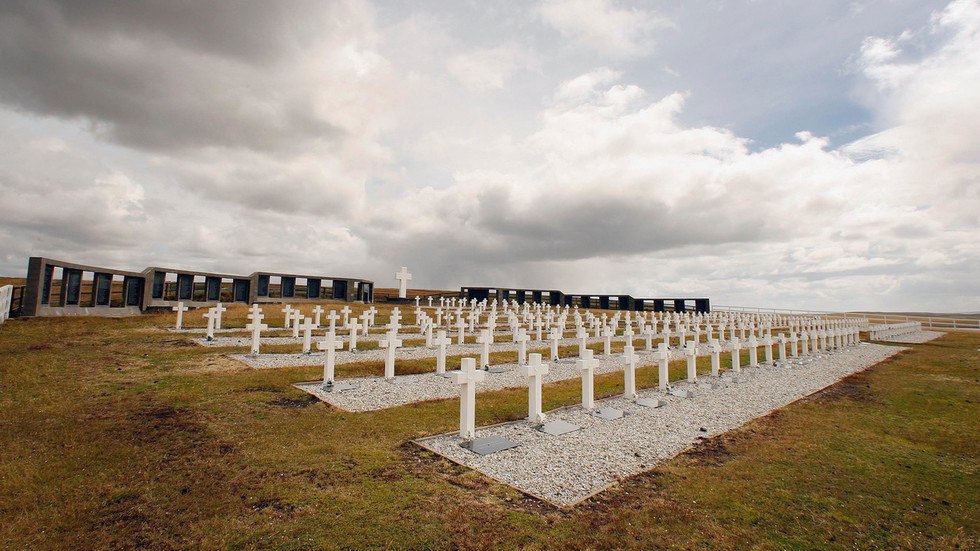
The pact on the Falklands/Malvinas was seen as too much of a concession
FILE PHOTO: Crucifix shaped grave stones stand in the Argentine cemetary at Darwin, Malvinas/Falkland Islands © Peter Macdiarmid / Getty Images
Argentina has formally renounced a 2016 deal with the UK regarding the disputed Falklands/Malvinas islands in the South Atlantic, the site of a bloody 1982 conflict, saying on Thursday that the matter needs to be resolved under the UN guidelines on decolonization. London insists that the issue was settled after local residents chose in a referendum to be ruled by Britain.
Argentinian Foreign Minister Santiago Cafiero said he had informed his British counterpart, James Cleverly, of the decision at their meeting in New Delhi, India, on the sidelines of the G20 summit.
Argentina “has proposed to resume negotiations on the question of sovereignty,” in compliance with the mandate of the UN General Assembly and the world body’s Committee on Decolonization, added Cafiero.
“The Falkland Islands are British,” Cleverly responded. “Islanders have the right to decide their own future – they have chosen to remain a self-governing UK Overseas Territory.”
Minister for the Americas David Rutley, who had just visited Buenos Aires, called the decision “disappointing” and accused Argentina of choosing to “step away from an agreement that has brought comfort to the families of those who died in the 1982 conflict.”
The disputed islands are located in the South Atlantic, about 600km off the Argentine mainland. Argentina lays claim to what it calls the Islas Malvinas, saying they were part of the territory granted independence from Spain in 1816. The UK has ruled what it calls the Falkland Islands since 1833. Argentina and the UK fought a ten-week war over the islands in 1982, which claimed almost 1,000 lives and ended in a British victory.
A nonbinding UN General Assembly resolution from 1965 called on both countries not to make unilateral changes in the dispute over the islands.
In the 2016 pact, Argentina and the UK agreed to disagree over sovereignty, but pledged to cooperate on energy, shipping, fishing, transportation, and identifying the remains of soldiers killed in the conflict. Alan Duncan, the minister who negotiated the deal with Argentina’s deputy foreign minister, Carlos Foradori, insinuated in his diaries that the talks were fueled by a constant supply of Merlot from the British Embassy’s wine cellar. Foradori has denied this.



